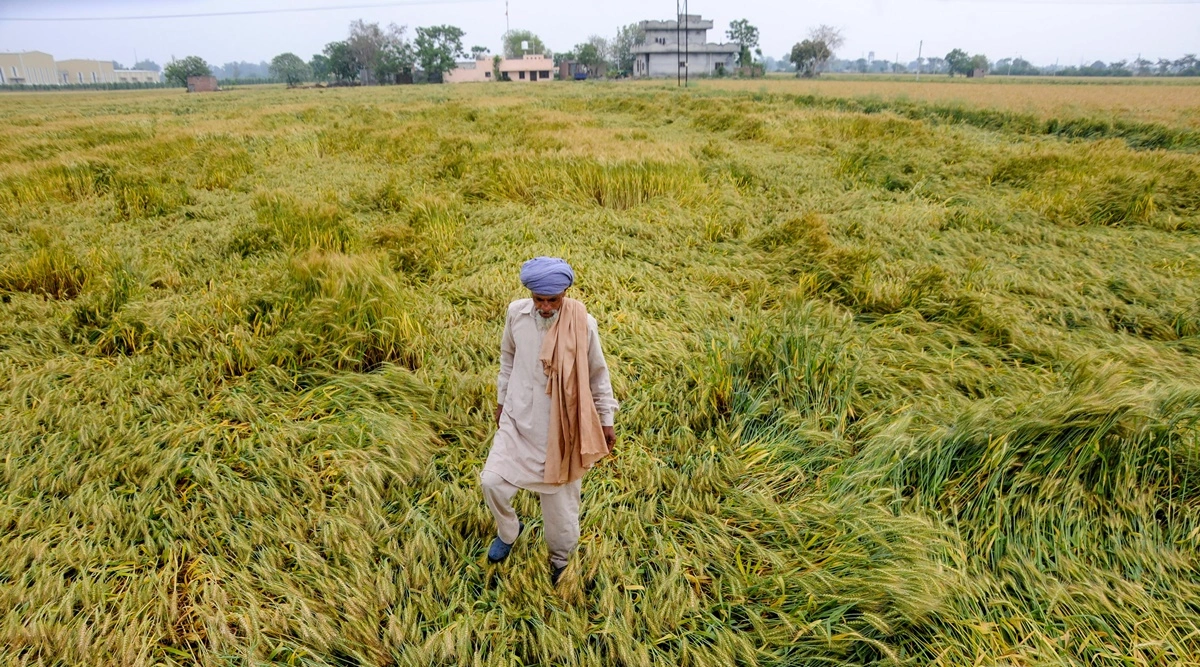With insurance virtually free, lakhs of people rushed to make claims on non-existent crops on land that was often not even used for farming. The 2023 experiment has failed, the government now admits.
The Maharashtra government has rolled back the Re 1 crop insurance scheme that it launched in 2023, and returned to the original Pradhan Mantri Fasal Bima Yojana (PMFBY), in which premiums are calculated as a percentage of the sum assured.
Instead of the token Re 1, farmers will now pay premiums of 2% of the sum assured for kharif, and 1.5% and 5% for rabi and cash (commercial/ horticultural) crops respectively.
Why has the Devendra Fadnavis government scrapped the scheme launched by the previous Mahayuti government of Eknath Shinde?
What was Maharashtra’s Re 1 crop insurance scheme?
In March 2023, the Shinde government began a version of the PMFBY in Maharashtra that further liberalised the already heavily-subsidised structure of premiums in the central scheme that was launched in 2016.
Crop insurance was made virtually free, with the government bearing the cost of the farmer’s entire premium barring a symbolic Re 1.
The special concession was intended to provide relief to farmers and increase insurance penetration in rural areas.
So what went wrong?
There was a massive surge in crop insurance applications across the state, and most claims turned out to be bogus.
In 2022, before the Re 1 scheme was introduced, there were 1.04 crore applications under PMFBY, a small number of which (11,731) were found to be bogus or ineligible.
Following the Re 1 scheme, applications in 2023 more than doubled to 2.42 crore, of which some 3.80 lakh were later found to be fraudulent. The trend continued in 2024, and the agriculture department had, until January 2025, rejected more than 4 lakh claim applications after finding them bogus or manipulated.
What kind of bogus claims were made?
- The fraudulent applications were found to have falsified land records, and made claims without any actual sowing, or about land that wasn’t even used for agriculture.
- According to agriculture department officials and reporting by The Indian Express, some claimants attempted to insure “crops” on government-owned land, including on plots belonging to government departments such as the Maharashtra Industrial Development Corporation (MIDC).
- Others made claims on farmland owned by religious trusts, shrines, temples, mosques, and other non-agricultural entities.
- In some cases, insurance claims were made without the knowledge of the owners of the land by others who used their land records.
- In Chandwad tehsil of Nashik district, an application for crop insurance was received for land on which a petrol pump was found. In the same district, “crops” on more than 100 acres of non-agricultural land were insured fraudulently.
And how were these fake claims submitted?
A large number of bogus applications were filed through Common Service Centres (CSCs), which are digital access points that help people submit government-related applications.
The CSC operators allegedly used fake names and land details, often without landowners knowing. The identification of the bogus claims raised serious questions over the security of data and the process of verification under the scheme.
What did the government do once the fake claims came to light?
The scale of the misuse of the scheme had become apparent by the time of the 2024 kharif crop, and the agriculture department began physical inspections and cross-verification of claims at the application stage.
To formulate a policy response, a 25-member expert committee was set up under Agriculture Commissioner Raosaheb Bhagade with the task of evaluating the extent of fraud and recommending corrective actions.
In its report submitted to the agriculture department in January 2024, the committee recommended several tough measures.
- It said that the Re 1 insurance scheme should be scrapped and that the government should return to the original premium structure under PMFBY.
- Those who had been found guilty of submitting bogus claims should not receive any government subsidy for five years.
- CSCs that had facilitated the submission of the fraudulent claims should be blacklisted, their operator IDs should be blocked, and criminal proceedings should be initiated against them. Subsequently, 140 CSC IDs were blocked.
The government has said that it was necessary to scrap the scheme in order to preserve the integrity of the insurance system, protect public funds, and ensure that only genuine and deserving farmers benefit.
According to officials, enhanced verification and accountability measures introduced in 2024 have already helped curb misuse and saved several crores of rupees.
Source - https://indianexpress.com













